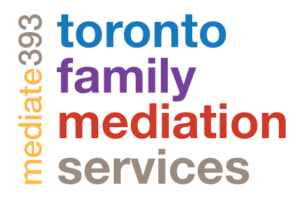Information Services at the North York Family Court (47 Sheppard Ave.)
06.18.2024
by Montana Schott, summer intern

Montana, in her third semester of Humber College’s Dispute Resolution Program , is spending her summer shadowing the Information & Referral Coordinators in Toronto’s family courts, among other things. She will be writing a series of blog posts sharing what she is learning. This is her second post.
A theme I am starting to notice for the IRCs (Information and Referral Coordinators) is that most people coming to them are very unsure of where to start or what their next steps might be. This lack of certainty highlights the importance of the IRC’s role as triage, since they are frequently the first point of contact for individuals who need help.
The job title of an information and referral coordinator captures exactly what these professionals do. Each person who contacted the FLIC (Family Law Information Centre, on the ground floor of the court house) left with either information or a referral. Some people reach out because it is the first number they find, and they are redirected to a more suitable resource. Other people are anxious to see progress in their case and call for updates that we cannot provide. What is certain is that if there is a suitable resource for anyone who calls, the IRC will provide it.
It is a role that involves constant learning. If they aren’t sure which resource is best for a client, or how a document needs to be filled out, they use every resource available to them to get that information. For a client seeking same day mediation the on-site mediator was consulted by the IRC to determine if their situation permitted this. This mediator was very knowledgeable and thorough in explaining the reason that this client was not eligible so that the IRC could understand and convey that information to the party.
A challenge for the IRCs in the courts is that oftentimes people are looking for a concrete answer regarding what needs to be done, or what will happen, something IRCs don’t always have. This can lead to frustration for clients, something IRCs (and all court staff I am sure) must deal with.
For example, a person coming into 47 Sheppard hoping to do a same day mediation without a court case. The IRC walked them through how to book a subsidized mediation using mediate393’s website, but they wanted faster results. It was recommended that they go see the lawyers next door and they wanted confirmation that they would receive help at the lawyers office. The IRC informed them that they are not a lawyer and therefor could not say what the lawyers will be able to do for them. They delivered this information in a manner that was so genuine and understanding that the client was not frustrated toward them anymore.
You have to be comfortable with delivering disappointing information to clients as well as helpful information. Sometimes an IRC simply cannot provide you with the information you’re asking for , such as legal advice. They cannot share an opinion on how legal proceedings might turn out, but can arrange for an eligible client to meet with duty counsel, or refer them to other legal supports. The disappointing information could also be that you have come to the wrong court, for instance to commence a divorce proceeding , and that you need to go to the court downtown for that. Whether they are assisting you to the fullest extent, or redirecting you to the appropriate resources the IRCs do their job with the utmost compassion and professionalism.

